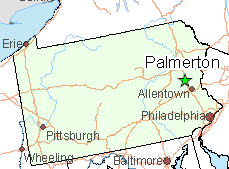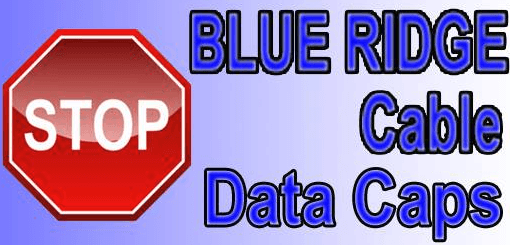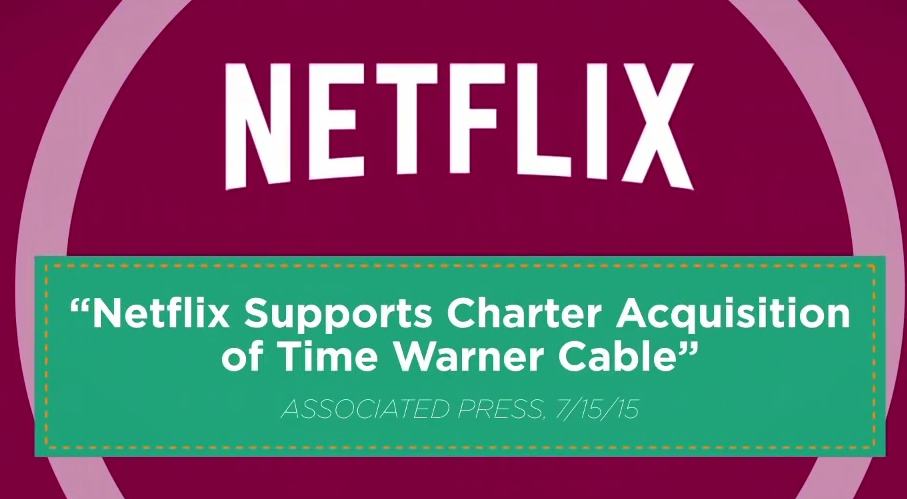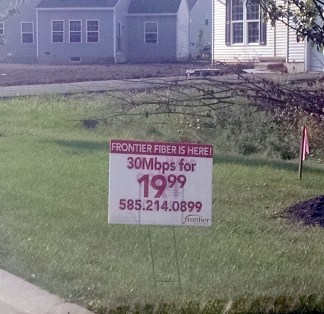 A tiny cable company serving communities around the Blue Mountain in eastern Pennsylvania has a big appetite for rationing Internet usage by imposing data caps and overlimit fees on their 170,000 customers.
A tiny cable company serving communities around the Blue Mountain in eastern Pennsylvania has a big appetite for rationing Internet usage by imposing data caps and overlimit fees on their 170,000 customers.
Effective Sept. 1, Blue Ridge dropped off-peak unlimited use service and imposed a 24-hour rationing plan on its customers, including a familiar overlimit fee of $10 per 50GB of excess usage — the same fee created by AT&T and adopted by several other cable and phone companies.
Customers on the lowest priced plans are most at risk of encountering overlimit fees, which most providers claim are designed to make heavy users pay more for access. In the past, the company maintained rarely enforced “soft caps” and off-peak unlimited usage starting at 5pm. The “hard caps” arrived Sept. 1 with claims the company generously doubled the allowance for some customers, without mentioning it also eliminated off-peak unlimited usage. In terms of “fairness,” the heaviest users signed up to the fastest speed tiers get the most generous allowances while those at lower-price tiers are most likely to encounter an overlimit penalty fee:
- Web Surfer $42.95 (1.5Mbps Download/384kbps Upload) – 150GB per month (no change)
- G5 $52.95 (5Mbps/384kbps) – 300GB per month (was 250GB)
- G10 $57.95 (10Mbps/800kbps) – 400GB per month (was 250GB)
- G15 $67.95 (15/2Mbps) – 500GB per month (was 250GB)
- Dream 60 $84.95 (60/3Mbps) – 600GB per month (was 250GB)
- Dream 100 $124.95 (100/5Mbps) – 700GB per month (was 250GB)

Blue Ridge Communications is headquartered in Palmerton, Pa.
To avoid a higher bill, customers will have to check a company-sponsored, unverified usage meter on Blue Ridge’s website and be ready to upgrade to a more costly Internet plan. Blue Ridge customers already pay substantially more for Internet service than other customers pay in the region. A Comcast subscriber in eastern Pennsylvania now pays $29.99 a month for the first 12 months of 25Mbps service, after which the price increases to as much as $66.95 a month. A less expensive 6Mbps tier costs $49.95 from Comcast, and a much faster 150Mbps tier is also available for $78.95, $46 less than what Blue Ridge charges for service that is 50Mbps slower.
“It’s no dream at 60 or 100Mbps, it’s a straight up gouging nightmare wrapped in greed and lies,” says Stop the Cap! reader Thomas, who lives in Palmerton and calls Blue Ridge’s parent company a local media and entertainment dictatorship. “My friends and relatives are stunned when I tell them one local company controls cable, telephone, wireless, the newspaper and the local news channel. It’s all Pencor through and through.”
Pencor Services, Inc., (Pennsylvania ENtertainment, COmmunications and Recreation) holds a unique position in eastern Pennsylvania. The rural character of the region has allowed Pencor to own and operate a large number of media and telecommunications companies. Pencor owns both Blue Ridge Communications — the cable operator and two local phone companies — Palmerton Telephone and the Blue Ridge Telephone Company. DSL service is offered, but it is “powered by” PenTeleData, another Pencor-owned operation. Wireless service is provided by Pencor-owned Pencor Wireless. In certain other markets, phone companies like Frontier Communications offer some competition, mostly low-speed DSL.

Pencor and its businesses have a substantial presence throughout the Blue Mountain region.
Residents get much of their local news from BRC TV-13, the local news channel on the Blue Ridge system serving Carbon, Monroe, Wayne & Pike counties and parts of Lehigh, Schuylkill, Northampton and Berks counties. BRC TV-11 provides local news on the Blue Ridge system serving Northern Lancaster County. Both stations are also owned by Pencor. So is the Lehigh Valley Press and the Times News newspaper operations.

A Facebook group has been organized to fight Blue Ridge over its new data caps.
Coverage of the usage cap imposition and customer reaction to it, best characterized as hostile, came from media not owned by Pencor.
Milfordnow! reported “when analyzing similar cap programs that have been implemented by other cable companies, it is apparent that bills may be rising substantially for heavy users.”
The cable company countered it expected only 3% of customers to affected by the new caps, which has some customers wondering why they need them at all.
“You have to wonder if caps affect almost nobody, why do companies spend so much time and energy imposing them,” said Thomas.
“Everything from downloads to YouTube, Netflix and even online gaming count against their new 24-hour cap,” Milford resident John Ferry III told the Pocono Record, reporting his latest bill was about $46 over previous charges. “They are telling people they have doubled the cap, but this is not true. By removing the off-peak time, which was essentially a free period, there is no math that makes it double.”
Blue Ridge customers have begun to organize a pushback against the data caps through a new Stop Blue Ridge Cable Data Caps Facebook page.

 The FCC under the leadership of Thomas Wheeler has targeted anti-municipal broadband laws in the states of North Carolina and Tennessee for federal pre-emption, effectively invalidating laws ghost-written by telecommunications industry lobbyists working for the states’ dominant telecom companies — Time Warner Cable in North Carolina and AT&T and Comcast in Tennessee. The laws are designed to restrict or discourage municipal broadband competition.
The FCC under the leadership of Thomas Wheeler has targeted anti-municipal broadband laws in the states of North Carolina and Tennessee for federal pre-emption, effectively invalidating laws ghost-written by telecommunications industry lobbyists working for the states’ dominant telecom companies — Time Warner Cable in North Carolina and AT&T and Comcast in Tennessee. The laws are designed to restrict or discourage municipal broadband competition.

 Subscribe
Subscribe A tiny cable company serving communities around the Blue Mountain in eastern Pennsylvania has a big appetite for rationing Internet usage by imposing data caps and overlimit fees on their 170,000 customers.
A tiny cable company serving communities around the Blue Mountain in eastern Pennsylvania has a big appetite for rationing Internet usage by imposing data caps and overlimit fees on their 170,000 customers.


 To complete an acquisition of landline assets in California, Florida, and Texas from Verizon Communications, Frontier Communications is hoping to raise
To complete an acquisition of landline assets in California, Florida, and Texas from Verizon Communications, Frontier Communications is hoping to raise  Californian consumers are among those most concerned about a Frontier takeover of landline and FiOS service. Verizon ventured far beyond its original service area extending from Maine to Virginia after it acquired independent telephone networks operated by General Telephone (GTE) and Continental Telephone (Contel) in 2000. In 2015, the company wants to return to its core landline service area in the northeast.
Californian consumers are among those most concerned about a Frontier takeover of landline and FiOS service. Verizon ventured far beyond its original service area extending from Maine to Virginia after it acquired independent telephone networks operated by General Telephone (GTE) and Continental Telephone (Contel) in 2000. In 2015, the company wants to return to its core landline service area in the northeast. David Lazarus, a consumer reporter for the Los Angeles Times,
David Lazarus, a consumer reporter for the Los Angeles Times,  As AT&T and Verizon ponder ditching high-cost landline customers, so long as there are companies like Frontier willing to buy, the deal works for both. Verizon gets a tax-free transaction that benefits both executives and shareholders. An already debt-laden Frontier satisfies shareholders by growing the business, which usually makes the balance sheet look good each quarter.
As AT&T and Verizon ponder ditching high-cost landline customers, so long as there are companies like Frontier willing to buy, the deal works for both. Verizon gets a tax-free transaction that benefits both executives and shareholders. An already debt-laden Frontier satisfies shareholders by growing the business, which usually makes the balance sheet look good each quarter. Those losses have to be reflected somewhere, and customers complain they are paying the highest price.
Those losses have to be reflected somewhere, and customers complain they are paying the highest price. 

